3 Mouthwatering Keto Nut BUTTERS [Guilt-Free Treat]
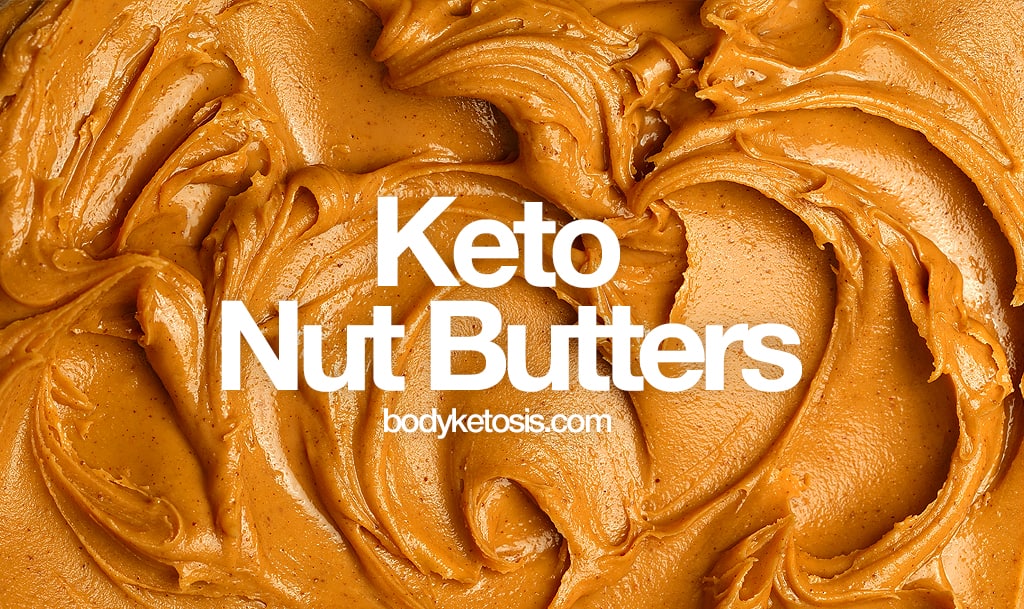
Nut butters are one of those marvelous foods that are both delicious and healthy.
But not all nut butters are alike and not suitable treat during the keto diet.
Nut butters are packed with all the right keto nutrients
- such as healthy fats,
- filling proteins, and
- gut-benefiting fiber.
But they can also be a source of hidden carbs, artificial sweeteners and eventually knock you out of ketosis.
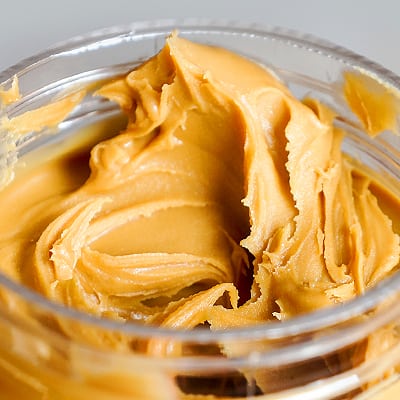
Bottom line:
choosing the right keto treats is a must if you want to lose fat and enjoy your keto journey.
From this guide, you will find the best low-carb nut butters.
Let’s dive in.
Is Nut Butter Really Keto Friendly?
Almost everyone who has tried the keto diet has asked this question at some point.
Which is kind of surprising given that nuts and seeds are known to be keto-friendly foods.
So, why this doubt about nut butters?
- The answer could lie in added sugars found in many nut butters but also in hydrogenated oils some of them contain.
- And while it is true that some nut butters come with not-so-good ingredients, many are suitable for keto.
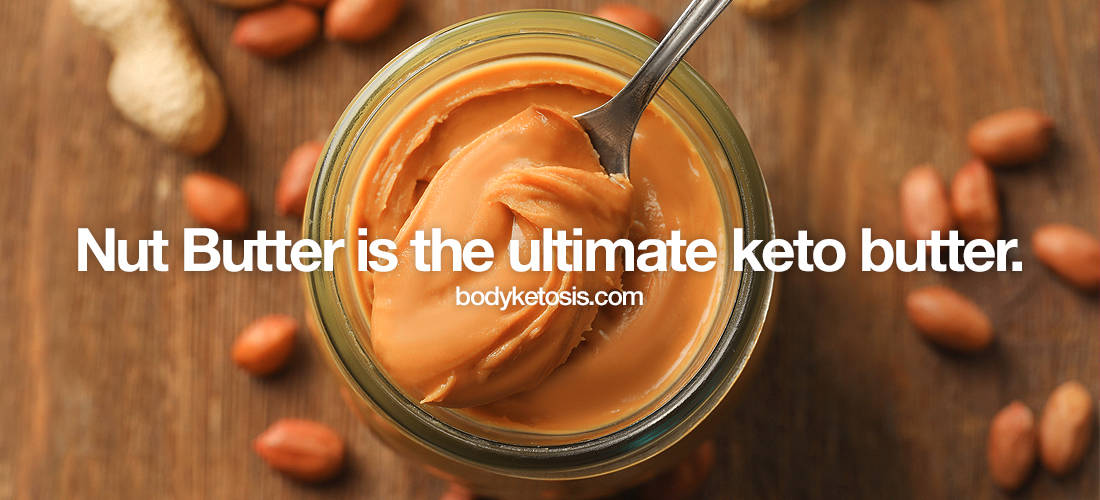
As already said, nut butters are made from nuts – foods that are high in fat, moderate in protein, and low in carbohydrates, which is the perfect ketogenic ratio.
Besides that, nut butters are a valuable source of micronutrients that are difficult to obtain on low-carb diets (e.g. fiber and magnesium).[1]
And like all plant-based foods, nut butters are rich in antioxidant phytochemicals, which benefit health in a myriad of ways.
But most importantly, nut butters are perfect keto foods because you can prepare a wide range of low-carb meals with them.
Can You Cook With Nut Butter?

You can definitely cook with nut butters.
While they are rarely used in Western cooking, nut butters (and seed pastes) are staples in Eastern and African cuisines.
- Examples include Thai peanut sauce, Szechuan peanut chicken, Indian cashew butter paneer, West African peanut stew, and Middle Eastern Hummus.
- In the West, however, nut butters are more common in dessert making.
Nut butters help flavor and thicken dishes. Many can also substitute cream.
However, they are not suitable for frying and sautéing like dairy butter.
That’s because nut butters are not as oily as dairy butter, which is 82-100% fat.
And besides, “butter” in nut butter is really a misnomer, and nut pastes would be a more accurate phrasing.
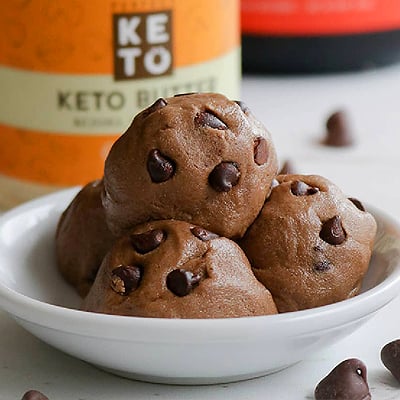
So, how do you use nut butters except as a spread?
Below are some ideas to consider.
- Adding them to breakfasts – Keto porridge, low-carb pancakes, and sugar-free smoothies always pair well with nut butters.
- Vegan dairy substitutes – Cashew butter is often used as a vegan dairy substitute in making faux cream cheese and mayonnaise, for example.
- Thickening soups – Some nut butters can be used instead of cream and cheese to thicken soups.
- Making dips – Hummus, peanut butter dips, and dairy and nut butter combos are popular options.
- Flavoring dressings – Almond-butter vinaigrette is becoming quite popular these days.
- Thickening sauces – Nut butters with a mild flavor are perfect alternatives to a roux.
What About Peanut Butter?
The quintessential nut butter of North America seems to be the source of much confusion in the keto community.
Some say it’s not suitable for keto; others claim it’s the perfect keto diet staple.
So, what’s really the truth here?
To understand what the issue with peanut butter, let’s first explain what it is made of.
Peanut butter is a paste made from roasted and finely ground peanuts. Some peanut butters are made solely from peanuts, while others contain additional ingredients like sugar and hydrogenated oils.
However, these constitute less than 10% of the end product as mandated by law, at least in the US.[2]
Peanuts are legumes, but that are categorized as nuts in the culinary sense because their nutritional profile is similar to that of nuts rather than legumes: 50% total fat, 16% total carbohydrates, and 26% protein.
So, peanut butter is often considered bad for keto because it’s made from a legume and contains added sugar and hydrogenated oil.
But, as already explained, peanuts are nutritionally closer to nuts, and there are also sugar-free and natural peanut butters on the market.
Two tablespoons of natural peanut butter contain around 3.5g net carbs, which isn’t all too bad for keto. Of course this will vary between brands and amount of servings.
With all this taken into account, peanut butter is suitable for keto and may even have advantages over other nut butters (more on that latter).
Does Nut Butter Helpto Lose Weight?
Since weight loss is a common goal of the keto diet, you probably want to know if nut butters can help you achieve this objective.
In a nutshell – yes – nut butters help with weight loss. They are high in protein and soluble fiber, both of which curb hunger.[3]
A growing number of studies also shows that eating nuts regularly prevents weight gain.[4][5]
Here are some other reasons why nuts support weight management:
- They are rich in unsaturated fats, which increase oxidation and potentially decrease body fat accumulation.
- Their high protein, fiber, and unsaturated fat content increase thermogenesis and the resting metabolic rate.
- Eating nuts regularly often results in eating less meat and refined carbohydrates (for the average person).
- Their high amount of soluble fiber slows down digestion.
When eaten as part of a ketogenic diet, however, nut butters help you stay within recommended keto macros ratio.
They may also help you reach ketosis since they boost your overall fat intake. This is even more evident with nut butters containing medium-chain triglycerides (MCTs).
Can Nut Butter BeUnhealthy?
No food is perfect. That’s why you need to eat a variety of foods generally considered healthy to achieve the best health outcomes.
The same holds true for nut butters. Some nut butters are better for you than others, and the benefits and setbacks of nut butters vary across types and brands.
With that out of the way, let’s see what can possibly make nut butters unhealthy:
1) Hydrogenated oil
- Hydrogenation as an industrial process whereby substances are treated with hydrogen. When oils are hydrogenated, their liquid unsaturated fat is turned into solid saturated fat. Oils can be partially or fully hydrogenated. Partially hydrogenated oils are high in trans fats, which raise bad (LDL) cholesterol and lower good (HDL) cholesterol, which is why they are now banned in many countries.[6]
- Fully hydrogenated oils don’t contain trans fats and are likely safer for health. Unfortunately, many labels will not emphasize what type of oil is in their product and may just put “hydrogenated oil” instead. So, knowing how much, if any, trans fats are in a nut butter becomes difficult.
2) Palm oil
- Some nut butter manufacturers replace hydrogenated oils with palm oil in their products. Palm oil can refer to both palm fruit oil and palm kernel oil, which are 50% and 80% saturated fat, respectively. This is a unique feature among vegetable oils and that make it solid at room temperature.
- Saturated fats have been demonized for a long time due to past research showing a link between saturated fat intake and heart disease.[7] Newer studies, however, there is no such link and that not all saturated fats are the same.[7] Still, palm oil has a major downside: its production leads to massive deforestation.
3) Added sugar
- Added sugar increases the caloric value of food and is linked to a host of metabolic problems like diabetes, obesity, and cardiovascular disease.[8] Avoiding added sugar where possible reduces your risk of these issues. But on a keto diet, you need to avoid added sugar completely.
- Luckily, not all nut butters have added sugar. And even when they do, it isn’t as much as you may think. On average, there is about half a gram of added sugar in a tablespoon of peanut butter, for example. Still, avoid them if you can to keep your intake of carbohydrates on keto optimal.
Natural nut butters don’t contain any of these, so you could say they’re the best for health and keto. But they may have some downsides.
For example, many nut butters are high in omega-6 fatty acids, which is seen as an inflammatory fatty acid; however, this was recently brought into question.[9]
Types of Nut Butters
There are probably as many nut butters as there are nuts since most nuts can be ground into a delicious paste.
Many seed pastes are also clumped in together with nut butters as a food category because they offer similar nutritional and culinary benefits. Another thing worth noting is that some brands sell nut butters containing a combination of different nuts.
I’ll discuss each of them below.
Pecan Butter
Pecans are expensive, costing at around $15 per pound. That’s why manufacturers will often mix pecan butter with less expensive nut butters to offer a more affordable product. But there are also pecan butters made solely from pecans on the market. Alternatively, you can make your own at home by roasting pecans and crushing them in a food processor. The taste is nutty and butters and goes well with keto desserts.
Almond butter
Almond butter is the most popular peanut butter substitute among keto diet followers. It is almost always sold in its natural state, and almonds are slightly lower in carbs than peanuts (2.8g net carbs/2 tbsp). Almond butter has a mild taste and runny consistency that makes it a fairly versatile ingredient.
Cashew butter
Probably the mildest tasting nut butter there is. It’s flavor and consistency make it taste dairy-like, which is exactly why it’s such a popular dairy substitute for vegans and those who need to avoid dairy. It’s easy to make at home by soaking and grinding cashews into a paste. Its only downside is that it’s a bit higher in carbs – 2 tbsp provide 8.2g net carbs.
Hazelnut Butter
Made from roasted and crushed hazelnuts, this butter is what makes Nutella taste so good. It’s a great alternative for those with peanut allergies since its nutty taste closely resembles that of peanut butter. It’s rich in monounsaturated fatty acids (MUFAs) and vitamin E, both of which are fantastic for heart health. It also has only 2.4g net carbs per 2 tbsp.
Walnut Butter
Walnuts are oiler than other nuts, so their nut butter will be higher in fat and runnier compared to other nut butters. A really good thing about walnut butter is that it’s rich in plant omega-3 fatty acids, which keep your blood vessels healthy. Unfortunately, this also makes it prone to rancidity, so you may need to get small batches and store it in the fridge.
Macadamia Nut butter
A pale-yellow nut product with an incredibly buttery taste, macadamia nut butter is also notable for its high- fat content. Two tablespoons provide an impressive 20g of fat and only 2g of net carbs. On the downside, it is a bit expensive, no matter if you buy it at a store or make it at home. An 8oz jar, for example, can cost anywhere between $20 and $30.
Coconut butter
Coconut butter is made from the flesh of coconuts that have been ground into a spreadable paste. It contains all the fat, fiber, protein, and micronutrients found in coconuts. Because coconuts are drupes and not true nuts, this nut butter is suitable for people with nut allergies or those on an autoimmune protocol. It’s also the most ketogenic nut butter since it contains natural MCTs.
Sunflower seed butter
Another peanut butter substitute for people with peanut allergies, this seed butter is also perfect for keto due to its high-fat content (55%). It’s also a good source of protein, fiber, vitamin E, zinc, and iron. Most sunflower seed butters on the market are made from mid-oleic sunflower seeds to boost their MUFAs content and lower omega-6 fats content.
Sesame seed paste (tahini)
Most people know tahini as a key hummus ingredient. But there are more uses of sesame seed paste than just making hummus. You can use it in making other dips, vinaigrettes, and use it as a spread. Keep in mind that, on its own, tahini does not have a pleasant taste or texture. Tahini is 54% fat, 17% protein, and 12% net carbohydrates. It’s a fairly good source of fiber, thiamin, iron, and zinc.
Peanut butter
Last but not least, peanut butter is the most widely consumed of the nut butters. While all nut butters have some amount of protein, peanut proteins are of higher quality than that of other nut butters. That’s because peanuts are legumes, and studies show that legume proteins are comparable to animal proteins.[10]
Best Keto Nut Butters
A growing number of food and supplement manufacturers now offer an array of nut butters specially designed for the keto diet.
These often contain a combination of different nut butters and even MCT oil.
Buying these takes much of the guesswork out of nut butter purchasing.
I’ve gathered 3 of the best keto nut butters based on quality and price.
#1. Onnit Trilogy Butter
Onnit’s Walnut Almond Cashew Trilogy Butter is a clean and natural product. The idea behind it was to combine some of the best-tasting and nutritious nut butters but that also complement each other well in terms of flavor.
The end result is a rich, creamy, and slightly sweet product that’s a bit on the runnier side. It’s delicious on its own but works well in baking and cooking.
As the name implies, this nut butter is made by combining walnut, almond, and cashew butters.

The nuts used in making it are certified organic and raw, so you won’t get that strong flavor found with nut butters made from roasted nuts.
And because it does not contain added hydrogenated oils, it will separate. But a quick stir solves this issue quickly.
This nut butter is rich in MUFA and omega-3 fats and is low in saturated and omega-6s fats. If you’re worried about the last two affecting your health, then this nut butter is definitely for you. Another thing to consider is its antioxidants. According to newer studies, walnuts are among some of the richest sources of polyphenols, which are plant compounds that provide antioxidant and anti-inflammatory protection.[14]
The good
- Mild flavor that goes well with everything.
- Rich in healthy fats and antioxidants.
- Contains organic and raw nuts.
- Is free of added oils, sugar, flavorings, and additives.
The bad
- Is expensive at $16.95 for an 8oz jar. However, discount prices drop to $10.09.
- Is fairly runny due to its high oil content.
Made from: walnuts, almonds, cashewsServing size: 1 tablespoon (15g)Calories: 100Total fat: 8gNet carbs: 2gFiber: 1gProtein: 3g
#2. Perfect Keto Nut Butter
Perfect Keto Nut Butter is a combination of raw macadamia, cashew, and coconut butters with added MCT oil and vanilla bean powder.
Its texture is thick, rich, and velvety, while the taste is mildly sweet and salty at the same time.
The vanilla flavor is barely noticeable, so you can definitely use this nut butter in savory and sweet dishes alike.
Besides adding it to your favorite meals, this nut butter is good on its own. It is a bit on the runnier side but keeping it in the fridge helps create a firmer texture similar to peanut butter.

A major benefit of this product is its added MCT oil, which was extracted from coconuts. In case you didn’t know, studies have long ago found that MCTs induce ketosis under the right conditions.[11] MCTs are also proven to curb hunger.[12]
The nut butters in this product are also among the most ketogenic and healthiest. Coconut butter is a natural source of lauric acid (C12), a type of MCT. Macadamia butter is a source of omega-7 fatty acids, which are rarely found in other foods and that studies link to better metabolic health.[13] Cashews are rich in MUFAs, which are considered good for the heart and metabolic health as well. Another benefit of this nut butter is its 5g of fiber per serving – that’s 18% of the recommended daily value.
The good
- Has a creamy texture and mild taste, making for a perfect peanut butter substitute.
- The nut butters used to make this product all have healthy ketogenic and anti-inflammatory fats.
- Contains MCT oil to help with ketosis and curbing hunger.
- No added sugars, sweeteners, or additives.
- High in fiber.
The bad
- Is quite pricey at $17 per one 8oz jar.
- The taste may be too mild for people use to a “nuttier” taste.
Made from: macadamia, cashew, coconutServing size: 2 tablespoons (32g)Calories: 210Total fat:20gNet carbs: 2gFiber:5gProtein:4g
#3. FBOMB Nut Butter
The FBOMB is brand belongs to the Love Your Foods company created by a husband-wife team Ross and Kara.
Their FBOMB line is dedicated to the low-carb, high-fat lifestyle and includes their famous nut butters.
Unlike most nut butters that are sold in jars, FBOMB nut butters are sold in squeezable pouches so you can fuel up whenever, wherever.
All FBOMB nut butters are made from macadamia nuts through a proprietary cool-grind process that produces a creamy base texture with a few small nut chunks.
The company claims that their nut butters are definitely unique texture-wise. The FBOMB line includes the following 6 products:
- FBOMB Nut Butter 4-Pack Sampler – 4oz ($12.99)
- FBOMB Salted Chocolate Macadamia Nut Butter (10-Count) – $24.99
- FBOMB Macadamia With Coconut Nut Butter Blend (10-Count) – $24.99
- FBOMB Nut Butter Variety Pack (16-Count) – $34.99
- FBOMB Macadamia Nut Butter With Sea Salt (10-Count) – $24.99
- FBOMB Macadamia Pecan With Sea Salt Nut Butter (10-Count) – $24.99
While some of these products contain nuts like pecans and coconuts, the main ingredient in all of them is macadamia nuts. These are the oiliest of the tree nuts, being 75% fat.
Most of this fat comprises MUFAs, but a smaller percentage is made of saturated fats. The flavor of their classic nut butter is mild and creamy, while their other nut butters offer coconutty, chocolate, salty, and pecan flavors.
The good
- Is made from a particularly oily nut high in MUFAs.
- A wide range of flavors and types to choose from.
- Comes in handy packaging you can carry anywhere with you.
The bad
- All products are expensive, with prices ranging between $13 and $25.
Information pertaining to FBOMB Nut Butter 4-Pack SamplerMade from: macadamia nutsServing size: 1 packet (1 fl oz)Calories: 215Total fat: 22gNet carbs: 1gFiber: 3gProtein: 2g
Over to You
So that’s my keto nut butter guide.
What did you think about the guide…
…or did I miss something important?
Which of these nut butters have you tried?
What are your experiences with nut butters during the keto diet?
Let me know by leaving a comment below.

Alex is the founder of Bodyketosis, an author, low-carb enthusiast, and a recovering chubby guy who reclaimed his health using the ketogenic lifestyle. The need for the keto life began after his aunt and cousin were diagnosed with type 2 diabetes and he was next in line. Through personal experience and extensive scientific research, Alex offers insightful tips for everything keto.
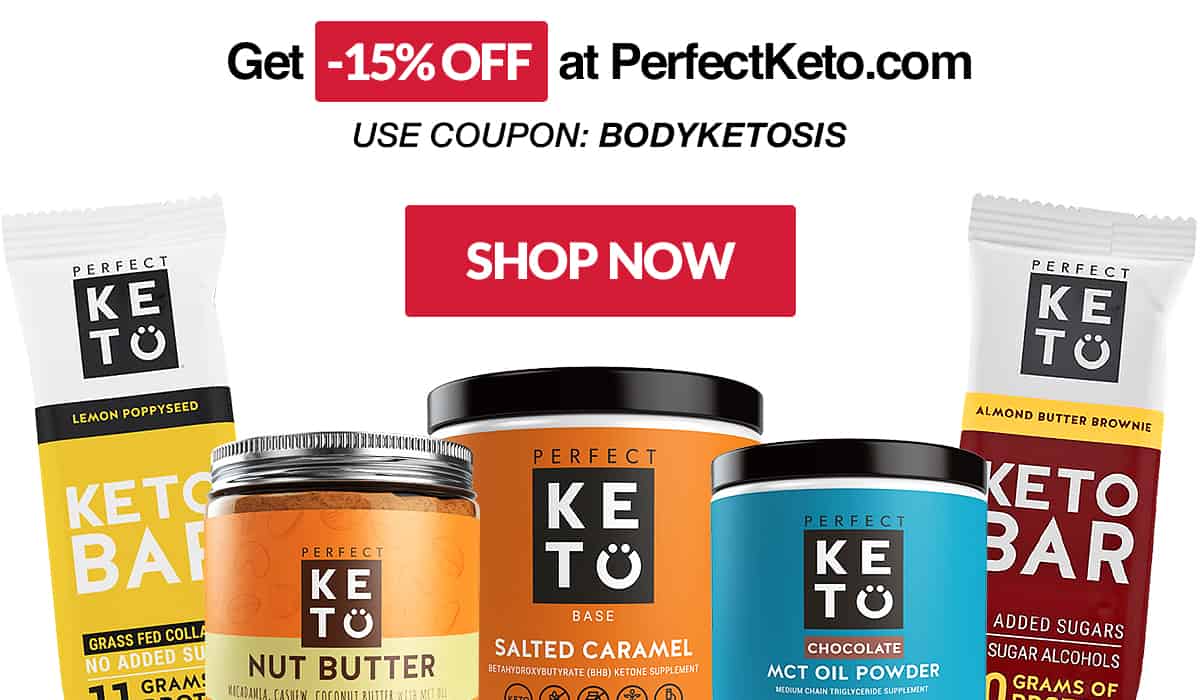

![11 Best Store-Bought Keto Mayonnaise Brands [2024]](https://bodyketosis.com/wp-content/uploads/2019/04/best-keto-mayonnaise-brands-to-buy-768x457.jpg)
![7 Best Pork Rinds for Keto Diet [THE Crunchy Snack]](https://bodyketosis.com/wp-content/uploads/2019/03/best-keto-pork-rinds-big-768x457.jpg)
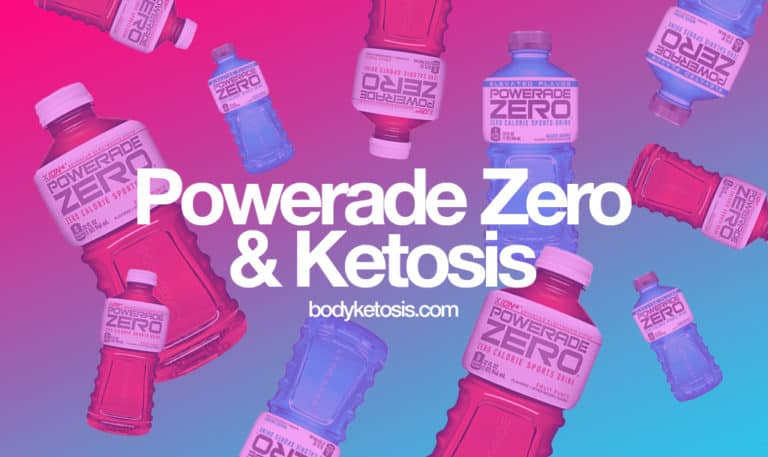
![11 Keto Approved CHOCOLATE Bars to BUY [Low-Carb Brands]](https://bodyketosis.com/wp-content/uploads/2019/02/keto-chocolate-768x457.jpg)
![11 Tasty Keto BBQ Sauces to Buy [Supercharge Your Steak]](https://bodyketosis.com/wp-content/uploads/2019/04/1store-bought-keto-bbq-sauces-768x457.jpg)
![Top 8 Keto Subscription Boxes in 2024 [to Make Low-Carb Exciting Again]](https://bodyketosis.com/wp-content/uploads/2019/08/best-keto-subscription-box-768x457.jpg)